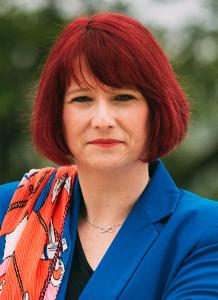Specialist conference
Details
Its content reflected the balance between theoretical approach and dilemmas and practical issues and challenges, enforced by participation of prominent persons from academic life, MPs, representatives of international organizations, political parties, civil society and students.
The Conference saw different approaches, from comparative, monographic-descriptive, analytical-explicative ones, to, at least in part, prospective pretension and character. Although the discussions were primarily politicological and oriented toward the National Assembly of the Republic of Serbia, they also tackled other, particularly sociological, legal and cultural aspects and dimensions. Presentations submitted by the participants and the discussion have led to a common conclusion that in our society - neither in scientific nor in broader public – the consciousness about the importance of this issue is still not enough developed, and that the development of the idea and practice of Parliamentarism in Serbia after the renewal of the multiparty system has not been followed by adequate theoretical discussions, empirical research or appropriate professional literature. Among else, it has been stated that contemporary Parliamentarism, in general, is facing with challenges of globalization, that it is exposed to waves of prevailing of executive power (government) and instrumentalized by political parties which transform it into the tool of the government. Parliamentary elections are in practice indirect or semi-indirect, in spite the Constitution’s stipulating them as direct. The relation between the will of citizens and the autonomy of MPs has not been adequately solved. Performance and internal capacities of parliamentary organs and bodies are not on an appropriate level. Many functions of the parliament have weakened – from control of the government to the representative function. Decisions are not made on the basis of better arguments in debate, but on the grounds of will of the ruling majority. In order to function autonomously and independently, the parliament must be furnished with adequate resources and instruments (budget, personnel, equipment). The Conference significantly contributed moving this topic from the margin to the center of interest. The planned publishing of the book with presentations from the Conference shall at least in part fill in that gap and contribute deepening the knowledge about Parliamentarism. The basic approach in overcoming such condition requires joint work of the Assembly of the Republic of Serbia, Faculty of Political Sciences and other referential institutions which missions include capacity building and offering of such kind of assistance. This conference is a contribution to improvement of functioning and capacity building of the Assembly and its bodies.
International Scientific Conference
Dilemmas and Challenges of Parliamentarism
THE FPS RESEARCH PROJECT:
DEMOCRATIC CAPACITY BUILDING OF POLITICAL INSTITUTIONS
06.06.2007. 1st day of the Conference
09.30 –10.00 Opening ceremony
Milan Podunavac,
Dean of the Faculty of Political Sciences
Klaudija Nolte,
Director of the Konrad Adenauer Foundation – Belgrade Office and former
Minister in the Government of the Federal Republic of Germany
Chairperson of the National Assembly of the Republic of Serbia
10.00 - 13.30 Part 1: PARLIAMENTARISM AND DEMOCRACY
Moderator: Slaviša Orlović
PRESENTATIONS, 10 minutes per participant
Vučina Vasović, Faculty of Political Sciences, Belgrade
Dilemmas and Challenges of Parliamentarism
Dragoljub Mićunović, former Chairperson of the Parliament of Serbia and
Montenegro,
Establishment of Parliamentary Dignity
Drago Zajc, Faculty of Political Sciences, President of the Slovenian Association
of Political Scientists, Ljubljana
Internal Structure and Democratic Potentials of Parliament
DISCUSSION, 60 minutes
PRESENTATIONS, 10 minutes per participant
Vesna Pusić, Vice-President of the Croatian Parliament, Zagreb
Parliament and Democratic Transition,
Srđan Darmanović, Dean of the Faculty of Political Sciences, Podgorica
Parliamentarism and/or Presidentialism
Vukašin Pavlović, Vice-Dean of the Faculty of Political Sciences, Belgrade
Democratic Capacities of State and Parliamentary Life
DISCUSSION, 60 minutes
13.30-14.30 lunch break
14.30-16.15 Part 2: PARLIAMENT AND SOCIETY
Moderator: Srđan Darmanović
PRESENTATIONS, 10 minutes per participant
Mirko Pejanović,Faculty of Political Sciences, Sarajevo
Parliament and Ethnic Pluralism
Čedomir Čupić, Faculty of Political Sciences, President of the Association
for Political Sciences, Belgrade
Culture of Speech in the Parliament
Dragan Vukčević, Faculty of Law, Podgorica
Political Culture and Parliamentary Debates
DISCUSSION, 60 minutes
16.15-18.00 Part 3: PARLIAMENT, PARTIES AND POLITICAL SYSTEM
Moderator: Ilija Vujačić
PRESENTATIONS, 10 minutes per participant
Gordana Siljanovska-Davkova, Faculty of Law, Skopje
Parliament and Political System
Vladimir Goati, Institute of Social Sciences, Belgrade
Parliamentarism and Party System
Zoran Stojiljković,Faculty of Political Sciences, Belgrade
Political Parties and Parliament
DISCUSSION, 60 minutes
07.06.2007. 2nd day of the Conference
09.00- 11.30 Part 4: FUNCTIONS AND WORK OF THE PARLIAMENT
Moderator: Vučina Vasović
PRESENTATIONS, 10 minutes per participant
Slaviša Orlović, Faculty of Political Sciences, Belgrade
Parliamentary Competences
Marijana Pajvančić, Faculty of Law, Belgrade
Parliamentary Legislative Procedure
Irena Pejić, Faculty of Law, Nis
Control Function of Parliament
Jim Seroka, Auburn University, USA
Professionalizing Staff and Technical Resources for Pre- Accession Legislatures: Needs,
Advantages and Concerns,
Jovan Komšić, Faculty of Economics, Subotica
Unicameral or Bicameral Parliment in Pluralistic Society?
DISCUSSION, 75 minutes
11.30 - 13.15 Part 5: LEGISLATIVE, EXECUTIVE AND JUDICIAL POWER
Moderator: Čedomir Čupić
PRESENTATIONS: 10 minutes per participant
Slobodan Vučetić, former Chief-Justice of the Constitutional Court of Serbia, Belgrade
Parliamentarism and Judiciary
Zoran Tomić, Faculty of Law, Belgrade
Parliament and Executive Administrative Apparatus
Slobodan Marković, Faculty of Political Sciences, Belgrade
Historical Development of Parliamentarism in Serbia
DISCUSSION, 60 minutes
13.15 – 14.30 Lunch break
14.30 – 17.30 Part 6: PARLIMANETARISM IN SERBIA
Moderator: Milan Podunavac
PRESENTATIONS, 10 minutes per participant
Klaudija Nolte
Director of the Konrad Adenauer Foundation – Belgrade Office and former
Minister in the Government of the Federal Republic of Germany
Work and Role of Parliament in Developed Democratic Society
- Representatives of political parties and deputies groups
DISCUSSION, 60 minutes
17.30 Conclusion of the Conference



